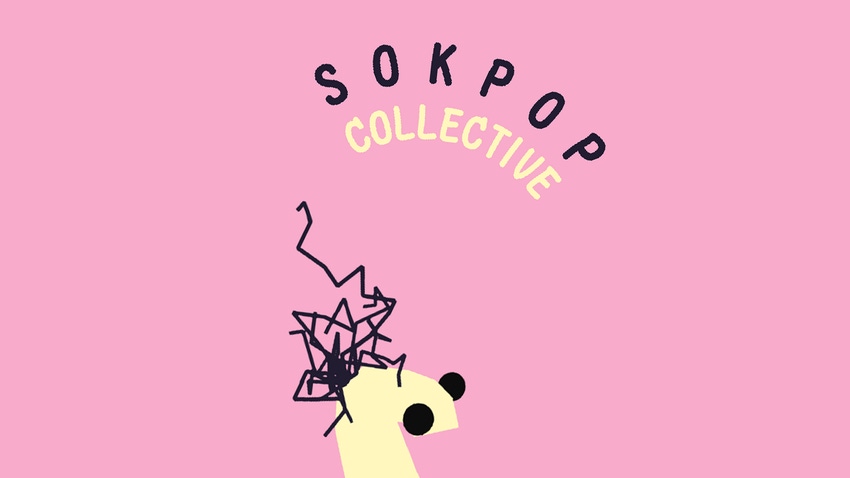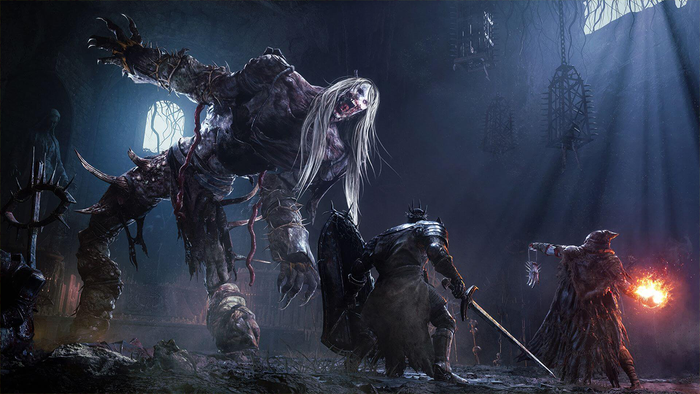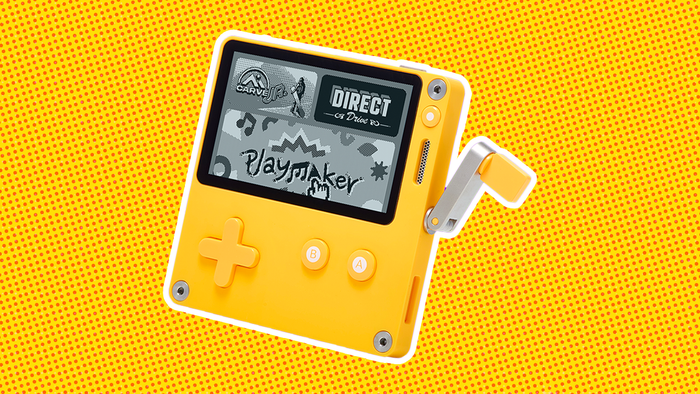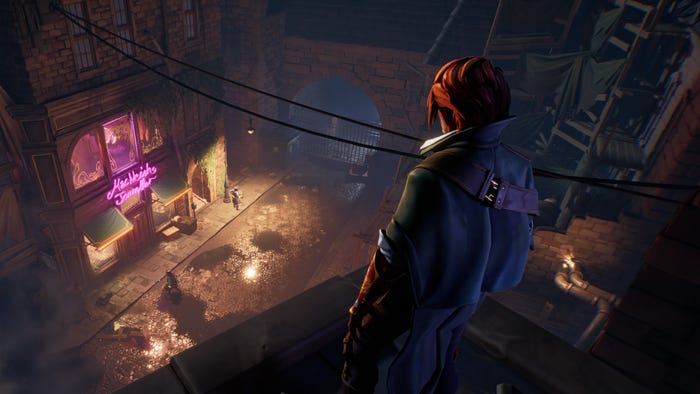Aran Koning and Ruben "Rubna" Naus, two members of indie quartet Sockpop Collective, share what they learned after releasing a century of games.

Sokpop Collective, a group of four game designers from Utrecht, Netherlands, have released a century of video games since joining forces in 2017.
No, that wasn't a typo. The quartet successfully developed and launched 100 game projects in the space of five years, helped along by a community of Patreon supporters who've backed them every step of the way.
Clearly, that's no small feat, and we wanted to find out what Aran Koning, Tijmen Tio, Ruben "Rubna" Naus , and Tom van den Boogaart—the four devs that formed Sokpop—learned after designing, developing, and ultimately releasing 25 games each over half a decade.
With that in mind, we managed to get 50 percent of Sokpop on a Zoom call in the hopes of understanding the individuals behind the collective, and what makes them tick.
If it's not fun, why bother?
Sokpop doesn't believe in rigid development workflows. Although they might be useful at larger businesses, Aran and Rubna—the two Sokpops we managed to wrangle—explain that each member of the collective employs their own, decidedly loose, approach to production.
It's an approach that's reflected in the myriad of projects Sokpop has released. The group's whimsical catalog is eclectic and offbeat, featuring a Sims-like with llamas called llama villa, a 3D bug adventure game dubbed Kochu's Dream, a universe sandbox named Heliopedia, and a card-game-meets-village-builder called Stacklands. There are, of course, more where those came from. 96 more, to be exact.
Although each member of the collective has their own creative spark—for instance, Rubna explains they generally design a character before deciding what they're going to do, while Aran finds inspiration in intriguing tech and mechanics—there does appear to be one unifying mantra that all four developers share: have fun.

Heliopedia
You often hear the phrase "find the fun" being tossed around by developers, but for Sokpop, the key was to find joy in the rigmarole of development. The group initially set out to make a game every two weeks, before deciding to give themselves a bit more time and launch a new title each month. Aran explains that almost episodic release schedule was designed to ensure the collective remained focused, while also keeping Patreon subscribers engaged in the project long enough for the group to perhaps even make some money.
Still, a four-week window can be fleeting, and that meant staying motivated was essential. At first, the group was adamant that each project they started should be completed, but eventually they realized it was a mentality that would likely lead to burnout.
"You've also got to have fun while making the game," says Aran. "If you don't have any motivation, then it's not fun at all. That's something that definitely changed over the years. At the beginning we felt we had to finish all of these games, whereas now we prioritize the fun of creation."
Dreams are for suckers
Inevitably, that means some projects were cast aside, but there are no regrets about those that didn't quite make the cut. Aran explains that if a Sokpop member felt apathetic about finishing a particular project for whatever reason, that was usually interpreted as a sign they should either quickly wrap things up, or perhaps even scrap the idea and move on.
That was easier to do when Sokpop was in its infancy. As the group became more experienced, projects began to scale up and become increasingly complex. Although some of Sokpop's titles began to balloon in scope, demanding more time from their creators, the four-week release window remained (largely) in place. It was an untenable situation that eventually reminded Rubna of the value of simply hitting "launch" and marching forward, rather than becoming trapped in a cycle of iteration and polish.
"A turning point for me came las year when I made Temple of Rubbo, which is a dungeon crawling local multiplayer title. I put like 700 hours or something into that project, and I was actually two months late releasing it. Then, I launched it, and it just didn't do so well," recalls Rubna.
"So, I made the next game in just three weeks. I had a lot of fun making it and everyone really liked it. That illustrated to me how important it is to have fun working on a project. You really have to be able to find the fun, and be honest with yourself [about when it's time to cut the cord]."

Temple of Rubbo
Aran and Rubna explain that's ultimately the benefit of shorter projects. If one doesn't resonate for whatever reason, you can just reset and start over. "Time is the most valuable thing you have [as a creative]," explains Aran, who believes that's why developers should do themselves a favor and let their dreams die.
"Sometimes you release a game and think 'it's not my best work, but I'll be able to release another one after this.' That's a really nice part [of this setup]. It's still hard to have that mindset in the moment, but in the end, you learn it doesn't really matter that much," he continues.
"You should never chase a dream project. You should just make a game, and don't think it's more than a game. It will only set you up for disappointment. I've learned that even if our games are good—or if we think they're good—and that they're maybe going to sell well, it doesn't always happen. Then when you don't expect it at all, a game will suddenly sell well. You never really know how it'll shake out, and your self worth shouldn't depend on that outcome."
For Aran and Rubna, real success is the community they've managed to build around Sokpop, with the two noting how the financial and moral support from their Patreon backers has allowed them to spend the last five years indulging their most outlandish and idiosyncratic ideas.
More time = more game
Looking ahead to the next who-knows-how-many years, Sokpop Collective has set itself a more manageable goal: create another 100 games before they die. With a bit more time on their hands, Aran and Rubna say they hope to make games they can support and nurture over months, and perhaps even years.
"We used to make a lot of games that were about 10 or 15 minutes long. I still think that's cool, but it's not what I want to make anymore. We're looking to make some that are a bit longer," says Aran. "What constitutes a game for me now, would be something that's accessible. When we were starting, most of the games were really poorly explained. That's something I expect to implement moving forward. I want to make stuff that's a bit more approachable."
Approachable means trying to ensure that Sokpop titles are open to as many players as possible from the outset. Another drawback of having around 28 days to make a video game, is that key features like menus and camera controls can often get kicked to the curb.
"Last year we released Stacklands and it did pretty well, but it didn't have a lot of features that are common in other games. It wasn't localized, the menu was really bad, and there was no controller support. So with the first couple of updates, we added those in," continues Aran.
"A lot of the games have interesting concepts but they're not fully fledged. If we were to take another six months on them or another year, we'd be able to remove some of the friction and help them evolve."

Stacklands
Rubna agrees, and says the team hopes to more rigorously playtest its releases, and maybe even port projects that manage to capture the imagination of players to other platforms. In short, he says the plan is to provide a lot more "aftercare" to eliminate some of the frustrations that players have encountered.
"I went back to a lot of the games and I couldn't believe anybody liked them. We didn't explain the controls and the camera was jittery. Those are the kind of issues I want to fix," adds Rubna.
"I think what helps now is that we have, in the back of our minds, the knowledge that we just have to make 100 games before we die. That helps me personally, because now I know it doesn't all have to be finished today. I can take a break and come back tomorrow, or take another year."
Before we wrap up, I ask Aran and Rubna what they made of Sokpop's first century. Candidly, the two admit that while some of their work shines, other releases are decidedly half-baked. Still, Rubna believes that all of them are at "interesting" at the very least, and suggests "it would probably have been really annoying if you made 100 games and felt they were all good."
As we take one last look at Sokpop's daft repository, our eyes poring over a polychromatic charcuterie board of projects with names like Fishy 3D, The Hour of the Rat, Oh Crab!, and Dr. Umgebung's School of Life, we're inclined to agree.

The Sokpop Collective: Tijmen Tio (left), Aran Koning (centre left), Ruben "Rubna" Naus (centre right), and Tom van den Boogaart (right)
Read more about:
FeaturesAbout the Author(s)
You May Also Like







